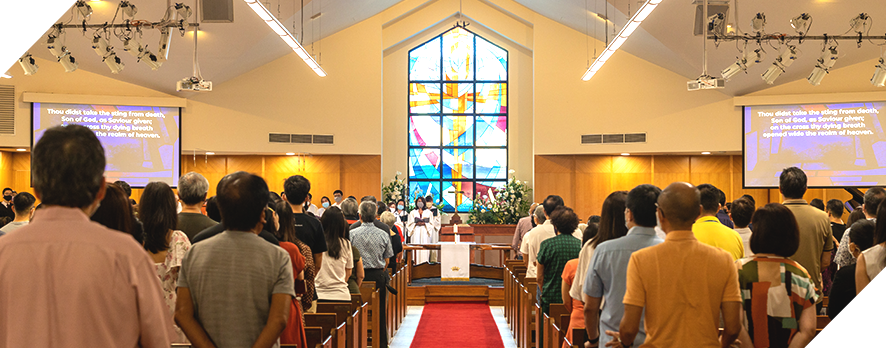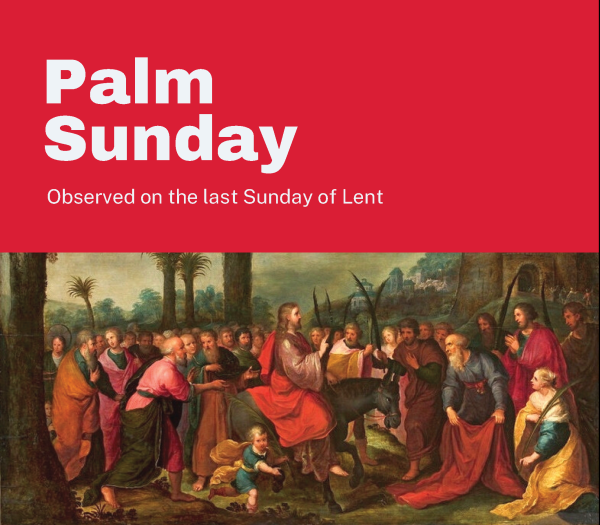
Event Calendar



WHAT IS IT?
A commemoration of how Jesus Christ entered Jerusalem in triumph, signalling the start of the week leading to his death and resurrection.
WHY DO WE CELEBRATE IT?
Palm Sunday demonstrates that glory and suffering are sides of the same coin; we cannot have one without the other. We glorify Jesus as the true king, and yet also see how the road to glory must pass through suffering. This is the same road he calls us to follow him on.
THE SUBVERSIVENESS OF PALM LEAVES
Palm leaves were originally associated with the Feast of Booths (Leviticus 23:40) as a symbol of thanksgiving for God’s provision. 150 years before Jesus came, it evolved into a subversive symbol when Jerusalem welcomed Judas Maccabaeus with palm branches after he liberated the city from their pagan overlords. We wave it in the same
subversive spirit, recognising that Jesus brings a new Kingdom.
WHAT DO WE DO?
Palm branches are waved as a re-enactment of the people responding to Jesus’ triumphant entry. We reflect on the contrast between the earthly and heavenly kingdoms.
White is used to signify the blood of Christ.
Some churches keep the branches until the next Ash Wednesday, burning them to prepare the ash.
BY ANOTHER NAME
Palm Sunday is sometimes celebrated as “Passion Sunday”, when the the sufferings of Jesus (known as the “passion”), and the events leading to the Crucifixion, are recounted. This is often done in churches that do not observe Maundy Thursday or Good Friday with services.
REFERENCES